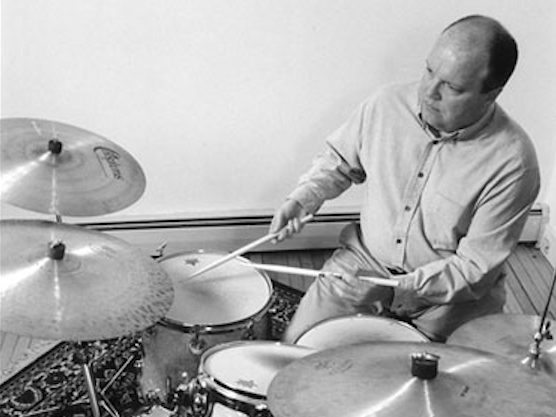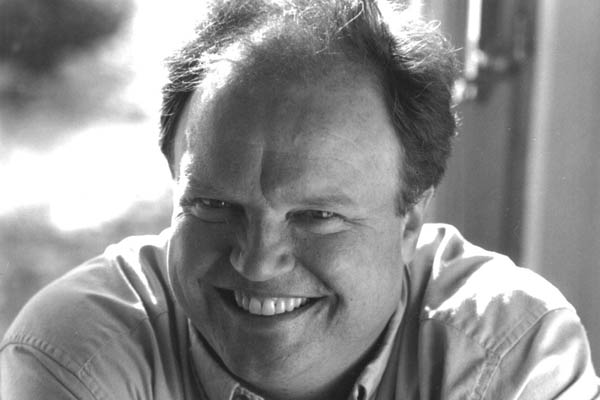Drum machine
Steve Grover takes another Breath
There should be a box on your tax forms that you could check each year to allow some of your hard-earned dollars to go toward paying Steve Grover’s taxes — income, property, sales, whatever. Anything to keep this guy in Maine. Not that he’s thinking about leaving: He’s happy teaching jazz and the history of pop music at UMaine/Augusta and, every few years or so, putting out a jazz record to document his time spent here and the compositions that have bounced into his head. But, damn, what a treasure.
 Go ahead, try and find other drummer-led jazz trios and ensembles. There aren’t many. I do know of the Daniel Glass Trio (which features an upstart vibist), Peter Erskine (who heads a piano trio), and the Whit Dickey Trio (which features an alto sax). Plus, I found a cool recording of Paul Motian leading alto saxist Joe Lovano and guitarist Bill Frisell.
Go ahead, try and find other drummer-led jazz trios and ensembles. There aren’t many. I do know of the Daniel Glass Trio (which features an upstart vibist), Peter Erskine (who heads a piano trio), and the Whit Dickey Trio (which features an alto sax). Plus, I found a cool recording of Paul Motian leading alto saxist Joe Lovano and guitarist Bill Frisell.
Notice that variety, though. Drummers playing with vibists, organ players, guitarists, pianists — we should encourage this drummer-led trio thing. Every jazz band has to have a drummer, right? And if every drummer can produce a record like Steve Grover’s new Breath [*This was originally published in November of 2003], we’d be doing pretty well. With the help of friends Frank Carlberg on the piano and Chris Van Voorst Van Beest on the bass (and a cameo by tenor saxophonist Andrew Rathbun), Grover has put together a wonderful album of jazz that ranges from the neo-classical “Intrinsic” (a “free” ballad, with no meter) to the “typical thing to do” eight-bar exchanges of the opening “Underdog.” Listen for Carlberg’s difficult rhythm exchanges between his left and right hand, and Van Beest’s aggressive high-end break, on “Apprentice.” That’s how a trio should work.
“For years I always said that my favorite thing to do was to work with three people and it didn’t matter what instruments,” says Grover of his choice for the new record. “I’ve done some stuff with guitar and saxophone and no bass. And Tony [Gaboury] and I would work in a trio from time to time. It’s just a different environment. I can take more solos and not feel like I’m sticking out.”
Which is strange, isn’t it? The bandleader not wanting to stick out? Can you imagine Benny Goodman saying, “yeah, I didn’t want to stick out on that last record”? But, of course, Grover’s playing does stick out. It’s just too good not to. Also, Grover says that he’s a bit higher in the mix than normal here, and bounces around to both sides of the stereo.
Check out his big, forceful, floor-tommy, bassy drum solo on “Spherical,” over quiet jabs by the piano continuing the melody: “I’m accompanied,” says Grover, “so I don’t have to fill everything up all the time.” It’s just great integration of the band’s talents.
He’s also accompanied for his solo on “Holiday,” where he breaks out the mallets for a Latin/samba thing. But he’s all alone on “Underdog,” where he works his snare in alternately halting and fluid gaps and rolls, and he goes full steam on his open solo during “Balance.”
The finisher, however, the beautifully intimate “Portrait #4,” featuring Rathbun, is the total package. Grover is a monster here, building anticipation while the sax takes a leave, then providing cover when it reenters with some dark swagger, and providing a crackling energy through Rathbun’s precise, ebullient phrases around the 5:20 mark. Finally the tune crests and releases, a fitting finish for a terrific disc.



 This time, he’s assembled a quintet, with Tim Sessions on trombone the voice you probably haven’t heard before. Well, unless you’re a little bit old-school — Sessions’s tenure in Maine lasted from 1981 through 1990 before he left for New York City, where he now finds himself as part of the orchestra accompanying The Producers on Broadway. His work with David Wells, on tenor sax, really drives the new release. Yes, both solo with the best of them throughout the disc, but it’s when they explore Grover’s frameworks in tandem that you get a real treat.
This time, he’s assembled a quintet, with Tim Sessions on trombone the voice you probably haven’t heard before. Well, unless you’re a little bit old-school — Sessions’s tenure in Maine lasted from 1981 through 1990 before he left for New York City, where he now finds himself as part of the orchestra accompanying The Producers on Broadway. His work with David Wells, on tenor sax, really drives the new release. Yes, both solo with the best of them throughout the disc, but it’s when they explore Grover’s frameworks in tandem that you get a real treat.